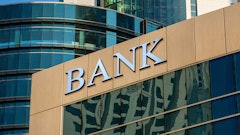

Planet 13 may be known for its extravagant dispensaries in Las Vegas and Southern California, but the multistate, vertically integrated company is now focused on maximizing efficiency due to financial pressure from inflation and other economic challenges, co-CEO Robert Groesbeck told Cannabis Business Times during a recent interview.
“We’ve taken a systematic approach to every operating expense and running through where we can cut costs, where we can reduce costs, and that starts from your ongoing contracts, whether it be security, maintenance, things of that nature,” Groesbeck says.
He shared insights for how cannabis companies can operate more efficiently in this “uncharted territory.”
Michelle Simakis: How have you been able to invest in engaging experiences while avoiding debt?
Robert Groesbeck: Debt in the cannabis space is extremely expensive, and a year ago, we didn’t anticipate how the markets were going to turn as they have. They are more troublesome today. Debt rates were coming down a bit, and it may have been more attractive to borrow, but now, in light of the inflationary environment we are in, things are beginning to go in the wrong direction.
We were able to fund our growth early on through the equity markets, and we were fortunate there that we got a lot of buy-in to the [Planet 13 Super Store] concept from our shareholders and capital markets. But that’s dried up now. We were very careful in how we were spending our money initially, and we were fortunate to have bankrolled in excess of $100 million at one point for future expansions and development, which allowed us to make that transition into the Florida market when we acquired the Harvest [Health and Recreation] license last October. We’re trying to cut costs where we can and run as nimbly as we can through this economic cycle.
MS: Where are you cutting costs, and where do you think cannabis companies have opportunities to operate more efficiently?
RG: As we tell our managers now, when you’re putting orders in to purchase, it’s not what you want, it’s what you absolutely have to have to operate. There really are no luxuries here.
Take a look at your marketing budgets. We’ve taken a real hard look at our billboards. Static boards are extremely expensive, and it’s hard to quantify the value, but that’s just one example. We’re looking at every component of our operations to see if we can get tighter, get leaner. Unfortunately, with less traffic and with less revenue, you have to look at staffing issues. Do you make cuts, and if so, where and by how much? I think a lot of companies are making those hard decisions now.
MS: You mentioned you can ride out this economic downturn and weather this storm.
RG: We’ve seen ups and downs in the industry …. Those of us that have been doing this for a while are pretty hardened to this. I just haven’t seen anything of this level yet. We need a catalyst. We’ve had a number of bills come out of the [U.S.] House. ... The problem is everybody in Washington just talks. We need banking relief desperately. We need tax relief. We need to get cannabis off of Schedule 1. This is absolutely critical to the long-term viability of this industry.
And tying back to my earlier point with debt, unfortunately debt was attractive … because revenues were up, companies were growing at a very robust clip. But when things contract and you still have those debt payments and obligations and the interest rates associated with that, if not managed properly, that can result in a death spiral for a company. So, it’s a scary time. I tell my employees—I don’t sugar-coat it. We’re in uncharted territory in many respects. We’re going to have to hunker down and mind [our] pennies and quarters.

























